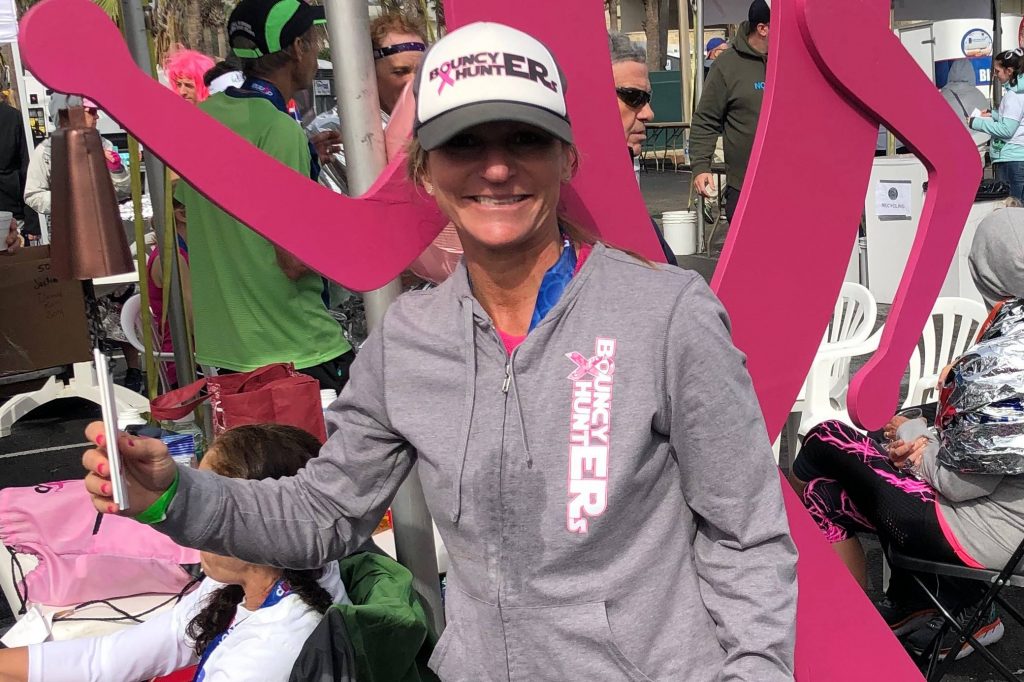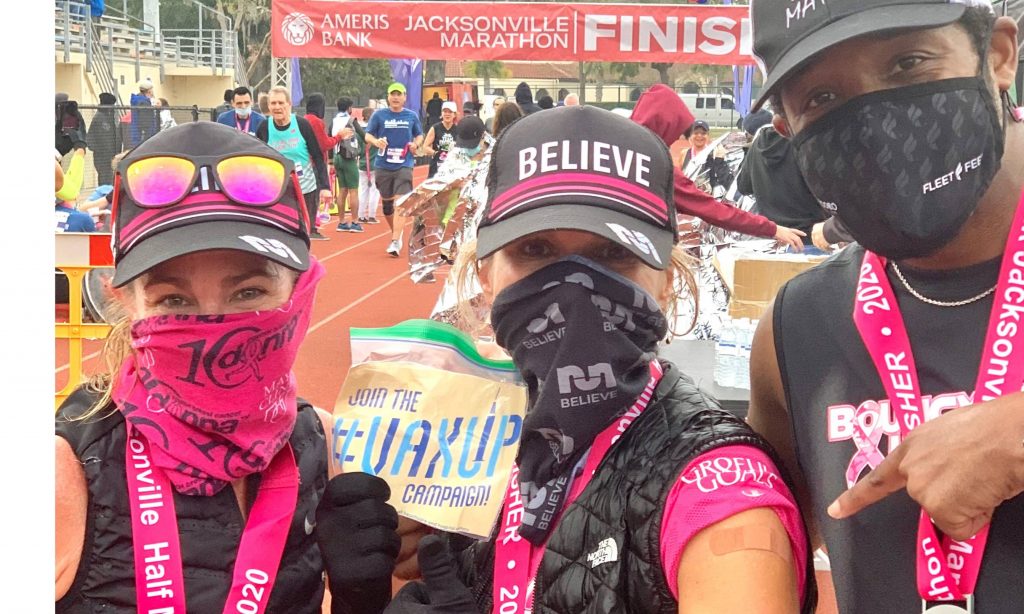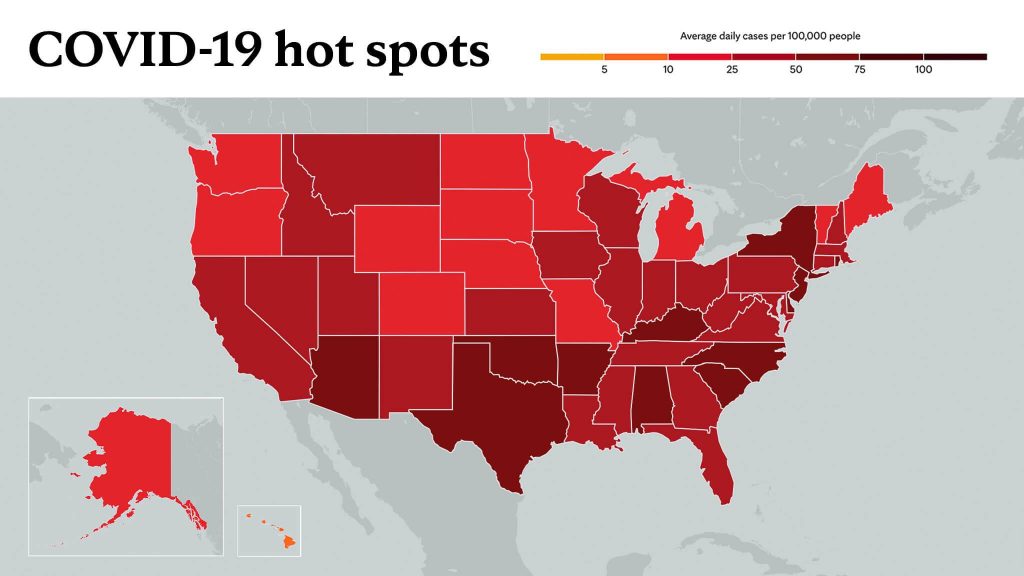
As an emergency medicine physician, Andrea Sharp, M.D., is familiar with COVID-19, having been on the front lines of the pandemic treating patients who come into Mayo Clinic Hospital in Florida. But Dr. Sharp is also a breast cancer survivor, so she is well-aware of the concerns cancer patients have about COVID-19 and the new COVID-19 vaccines.
"I was diagnosed in April 2016 with an early stage breast cancer," says Dr. Sharp, who underwent surgery and six weeks of radiation. Despite being four years from her original diagnosis when COVID-19 struck, Dr. Sharp had her own questions. "Not only as a physician, but also as someone who's been challenged with the diagnosis of cancer and been through treatments," she says. "There were ― and still are ― a lot of unknowns."
Dr. Sharp admits she had some hesitancy about the COVID-19 vaccines at first, but after "a lot of reading and research," she was one of the first Mayo Clinic staff members to be vaccinated for COVID-19.
Watch: A breast cancer survivor's point of view on COVID-19 vaccines.
Journalists: Broadcast-quality sound bites with Dr. Sharp are available in the downloads. Please courtesy: "Andrea Sharp, M.D. / Emergency Medicine / Mayo Clinic."
"I feel very confident in this vaccine, not only as a physician, but also as someone who's been challenged with the diagnosis of cancer and been through treatments," she says. "I feel this vaccine is optimism on the horizon. It's our way to move through the pandemic."
Although Dr. Sharp advocates for cancer patients to be vaccinated for COVID-19, she recognizes that each person's situation is different. "I would recommend having a dialogue with your health care providers about the vaccines," she says. "But I encourage you to take it if you are able to get it. I would also I encourage family members and people you're surrounded by take it if they're appropriate for the vaccine because it allows your vulnerabilities to be less exposed."

Dr. Sharp adds that until greater numbers of people are vaccinated for COVID-19, it is also important for cancer patients to be diligent about practicing safe behaviors. "Even though the vaccine is available, we still must take all the necessary precautions with masking, hand-washing and social distancing. Have conversations with people around you to make sure they are doing the right things to keep you safe and protected."
__________________________________
Information in this post was accurate at the time of its posting. Due to the fluid nature of the COVID-19 pandemic, scientific understanding, along with guidelines and recommendations, may have changed since the original publication date.
For more information and all your COVID-19 coverage, go to the Mayo Clinic News Network and mayoclinic.org.
Learn more about: tracking COVID-19 and COVID-19 trends.








